188 have author last names that start with M have author last names that start with M

Chuck Noll did not need a dramatic public profile to be the catalyst for one of the greatest transformations in sports history. In the nearly four decades before he was hired, the Pittsburgh Steelers were the least successful team in professional football, never winning so much as a division title. After Noll’s arrival, his quiet but steely leadership quickly remolded the team into the most accomplished in the history of professional football. And what he built endured well beyond his time with the Steelers – who have remained one of America’s great NFL teams, accumulating a total of six Super Bowls, eight AFC championships, and dozens of division titles and playoff berths.
In this penetrating biography, based on deep research and hundreds of interviews, Michael MacCambridge takes the measure of the man, painting an intimate portrait of one of the most important figures in American football history. He traces Noll’s journey from a Depression-era childhood in Cleveland, where he first played the game in a fully integrated neighborhood league led by an African-American coach and then seriously pursued the sport through high school and college. Eventually, Noll played both defensive and offensive positions professionally for the Browns, before discovering that his true calling was coaching. MacCambridge reveals that Noll secretly struggled with and overcame epilepsy to build the career that earned him his place as “the Emperor” of Pittsburgh during the Steelers’ dynastic run in the 1970s, while in his final years, he battled Alzheimer’s in the shelter of his caring and protective family.
Noll’s impact went well beyond one football team. When he arrived, the city of steel was facing a deep crisis, as the dramatic decline of Pittsburgh’s lifeblood industry traumatized an entire generation. “Losing,” Noll said on his first day on the job, “has nothing to do with geography.” Through his calm, confident leadership of the Steelers and the success they achieved, the people of Pittsburgh came to believe that winning was possible, and their recovery of confidence owed a lot to the Steeler’s new coach. The famous urban renaissance that followed can only be understood by grasping what Noll and his team meant to the people of the city. The man Pittsburghers could never fully know helped them see themselves better.
Chuck Noll: His Life’s Work tells the story of a private man in a very public job. It explores the family ties that built his character, the challenges that defined his course, and the love story that shaped his life. By understanding the man himself, we can at last clearly see Noll’s profound influence on the city, players, coaches, and game he loved. They are all, in a real sense, heirs to the football team Chuck Noll built.
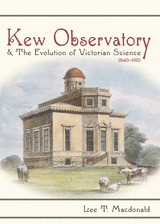
Lee T. Macdonald explores the extraordinary story of this important scientific institution as it rose to prominence during the Victorian era. His book offers fresh new insights into key historical issues in nineteenth-century science: the patronage of science; relations between science and government; the evolution of the observatory sciences; and the origins and early years of the National Physical Laboratory, once an extension of Kew and now the largest applied physics organization in the United Kingdom.
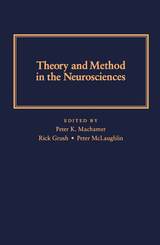
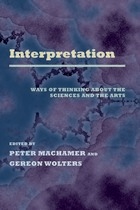
In an interesting turn, Nicholas Rescher writes on the interpretation of philosophical texts. Then Catherine Wilson and Andreas Blank explicate and critique Rescher’s theories through analysis of the mill passage from Leibniz’s Monadology.
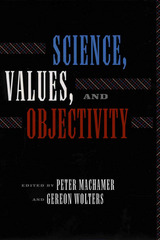
Few people, if any, still argue that science in all its aspects is a value-free endeavor. At the very least, values affect decisions about the choice of research problems to investigate and the uses to which the results of research are applied. But what about the actual doing of science?
As Science, Values, and Objectivity reveals, the connections and interactions between values and science are quite complex. The essays in this volume identify the crucial values that play a role in science, distinguish some of the criteria that can be used for value identification, and elaborate the conditions for warranting certain values as necessary or central to the very activity of scientific research.
Recently, social constructivists have taken the presence of values within the scientific model to question the basis of objectivity. However, the contributors to Science, Values, and Objectivity recognize that such acknowledgment of the role of values does not negate the fact that objects exist in the world. Objects have the power to constrain our actions and thoughts, though the norms for these thoughts lie in the public, social world.
Values may be decried or defended, praised or blamed, but in a world that strives for a modicum of reason, values, too, must be reasoned. Critical assessment of the values that play a role in scientific research is as much a part of doing good science as interpreting data.
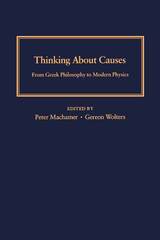
Emerging as a hot topic in the mid-twentieth century, causality is one of the most frequently discussed issues in contemporary philosophy. Causality has been a central concept in philosophy as well as in the sciences, especially the natural sciences, dating back to its beginning in Greek thought. David Hume famously claimed that causality is the cement of the universe. In general terms, it links eventualities, predicts the consequences of action, and is the cognitive basis for the acquisition and the use of categories and concepts in the child. Indeed, how could one answer why-questions, around which early rational thought begins to revolve, without hitting on the relationships between reason and consequence, cause and effect, or without drawing these distinctions? But a comprehensive definition of causality has been notoriously hard to provide, and virtually every aspect of causation has been subject to much debate and analysis.
Thinking about Causes brings together top philosophers from the United States and Europe to focus on causality as a major force in philosophical and scientific thought. Topics addressed include: ancient Stoicism and moral philosophy; the case of sacramental causality; traditional causal concepts in Descartes; Kant on transcendental laws; the influence of J. S. Mill's politics on his concept of causation; plurality in causality; causality in modern physics; causality in economics; and the concept of free will.
Taken together, the essays in this collection provide the best current thinking about causality, especially as it relates to the philosophy of science.

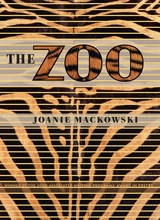
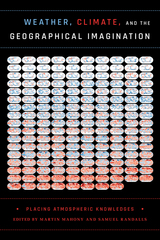


Moving with quantum ease through the porous membranes of the past, present, and future, the speaker wonders: What is each moment but the swirling confluence (or shy first meeting) of past and future—of what happened, and what-has-not-yet-happened but will?
Such phenomenological questions are sparked by ordinary events: a friend's passion for jigsaw puzzles; an imagined conversation with a neighbor's dog; a meditation on the uses of modern poetry. Here, in language at once elegant and agile, intimate and universal, the author probes beneath the surface of happenstance, moving with depth, humor, and compassion into the heart of our shared predicament: that of loving what we cannot keep.
But if time in these poems is relative, it bends toward grace—even, as the title suggests, towards consolation. Taken together, the poems invite us to raise a glass to the way we're each "held light and golden in Time's mouth," and to savor something of the eternal—distilled, sparkling, already lost—inside every now.


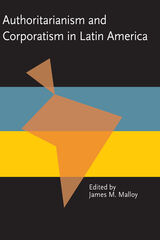
The sixteen previously unpublished essays in this volume provide a focus for the discussion of authoritarianism and corporatism by clarifying various concepts, and by pointing to directions for future research utilizing them. The book is organized in four parts: a theoretical introduction; discussions of authoritarianism, corporatism, and the state; comparative and case studies; and conclusions and implications. The essays discuss authoritarianism and corporatism in Argentina, Bolivia, Brazil, Chile, Colombia, the Dominican Republic, Mexico, Peru, Uruguay, and Venezuela.
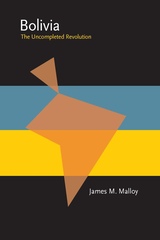
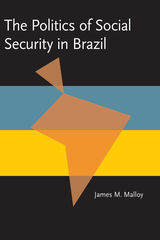


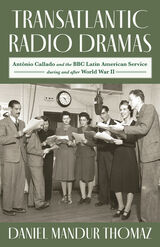
Fills the Gaps of an Important Modernist Brazilian Writer’s Early Career and Illuminates Recurring Themes of His Later Works
The BBC Latin American Service was created in 1938, funded by the British Ministry of Information, to counter fascist propaganda broadcast to Latin America. Now considered one of the major Latin American novelists of the twentieth century, Brazilian writer Antônio Callado (1917–1997) got his start writing radio drama scripts for the BBC LAS during and after World War II. Largely forgotten until Daniel Mandur Thomaz collected them in a 2018 volume published in Brazil, these radio scripts were propaganda in their own right and were part of a concerted effort to win sympathy for Britain and the Allies in Latin America. They reveal how Callado’s experiences during the war influenced his writing and had a critical impact on themes he would revisit consistently throughout his literary career. Transatlantic Radio Dramas analyzes the scripts themselves, but also examines the institutions, material practices, and beliefs that allowed modernist transatlantic networks like the BBC LAS to flourish.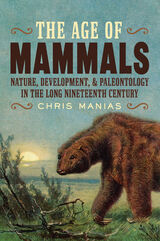
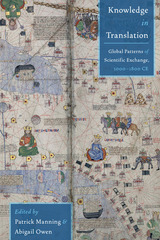
In the second millennium CE, long before English became the language of science, the act of translation was crucial for understanding and disseminating knowledge and information across linguistic and geographic boundaries. This volume considers the complexities of knowledge exchange through the practice of translation over the course of a millennium, across fields of knowledge—cartography, health and medicine, material construction, astronomy—and a wide geographical range, from Eurasia to Africa and the Americas. Contributors literate in Arabic, Catalan, Chinese, Greek, Hebrew, Italian, Japanese, Latin, Minnan, Ottoman, and Persian explore the history of science in the context of world and global history, investigating global patterns and implications in a multilingual and increasingly interconnected world. Chapters reveal cosmopolitan networks of shared practice and knowledge about the natural world from 1000 to 1800 CE, emphasizing both evolving scientific exchange and the emergence of innovative science. By unraveling the role of translation in cross-cultural communication, Knowledge in Translation highlights key moments of transmission, insight, and critical interpretation across linguistic and faith communities.

In this volume, an esteemed group of international historians examines key elements of science in societies across Spanish America, Europe, West Africa, India, and Asia as they overlapped each other increasingly. Chapters focus on the range of participants in eighteenth- and nineteenth-century science, their concentrated effort in description and taxonomy, and advancements in techniques for sharing knowledge. Together, contributors highlight the role of scientific change and development in tightening global and imperial connections, encouraging a deeper conversation among historians of science and world historians and shedding new light on a pivotal moment in history for both fields.
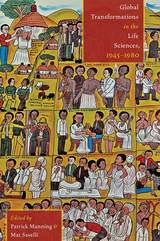

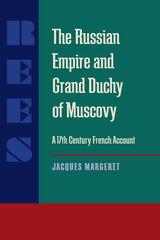
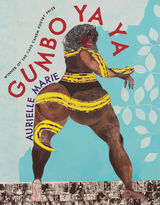
Gumbo Ya Ya, Aurielle Marie’s stunning debut, is a cauldron of hearty poems exploring race, gender, desire, and violence in the lives of Black gxrls, soaring against the backdrop of a contemporary South. These poems are loud, risky, and unapologetically rooted in the glory of Black gxrlhood. The collection opens with a heartrending indictment of injustice. What follows is a striking reimagination of the world, one where no Black gxrl dies “by the barrel of the law” or “for loving another Black gxrl.” Part familial archival, part map of Black resistance, Gumbo Ya Ya catalogs the wide gamut of Black life at its intersections, with punching cultural commentary and a poetic voice that holds tenderness and sharpness in tandem. It asks us to chew upon both the rich meat and the tough gristle, and in doing so we walk away more whole than we began and thoroughly satisfied.
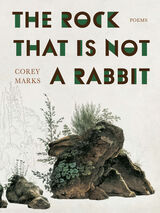
Change arises as something both desired and mourned in poems that reckon with a world where perspectives blur, names drift “billowing, unattached,” and language yields a broken music. A statue of Lenin topples in a Georgian square only to be raised again in a Dallas backyard. Antlers sprout from Actaeon’s head, rendering him unrecognizable to the dogs he loves. Ungainly piano notes pour from a window and wake unexpected wonder in a lost walker. A forest grows inside a box that once held a father’s new pair of shoes. Skylab slips from its watchful orbit and careens toward Earth. A familiar chair once owned by a now absent family appears in a field of wild parsnips. Meditative and richly imaginative, these poems cast and recast the self and its relation to other selves, and to memory, history, power, and the natural world.
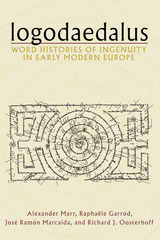
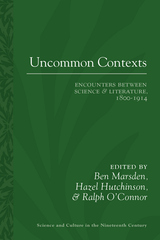
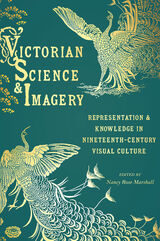
The nineteenth century was a period of science and imagery: when scientific theories and discoveries challenged longstanding boundaries between animal, plant, and human, and when art and visual culture produced new notions about the place of the human in the natural world. Just as scientists relied on graphic representation to conceptualize their ideas, artists moved seamlessly between scientific debate and creative expression to support or contradict popular scientific theories—such as Darwin’s theory of evolution and sexual selection—deliberately drawing on concepts in ways that allowed them to refute popular claims or disrupt conventional knowledges.
Focusing on the close kinship between the arts and sciences during the Victorian period, the art historians contributing to this volume reveal the unique ways in which nineteenth-century British and American visual culture participated in making science, and in which science informed art at a crucial moment in the history of the development of the modern world. Together, they explore topics in geology, meteorology, medicine, anatomy, evolution, and zoology, as well as a range of media from photography to oil painting. They remind us that science and art are not tightly compartmentalized, separate influences. Rather, these are fields that share forms, manifest as waves, layers, lines, or geometries; that invest in the idea of the evolution of form; and that generate surprisingly kindred responses, such as pain, pleasure, empathy, and sympathy.

Winner, 2016 BCALA Literary Award (poetry category)
Winner of the 2014 Agnes Lynch Starrett Poetry Prize
Finalist, 2015 NAACP Image Awards (poetry category)
Wild Hundreds is a long love song to Chicago. The book celebrates the people, culture, and places often left out of the civic discourse and the travel guides. Wild Hundreds is a book that displays the beauty of black survival and mourns the tragedy of black death.

Solid State Insurrection argues that solid state physics was essential to securing the vast social, political, and financial capital Cold War physics enjoyed in the twentieth century. Solid state’s technological bent, and its challenge to the “pure science” ideal many physicists cherished, helped physics as a whole respond more readily to Cold War social, political, and economic pressures. Its research kept physics economically and technologically relevant, sustaining its cultural standing and policy influence long after the sheen of the Manhattan Project had faded. With this book, Joseph D. Martin brings a new perspective to some of the most enduring questions about the role of physics in American history.
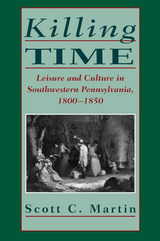
Scott C. Martin examines leisure as a “contested cultural space” in which nineteenth-century Americans articulated and developed ideas about ethnicity, class, gender, and community. This new perspective demonstrates how leisure and sociability mediated the transition from an agricultural to an industrial society. Martin argues persuasively that southwestern Pennsylvanians used leisure activities to create identities and define values in a society being transformed by market expansion. The transportation revolution brought new commercial entertainments and recreational opportunities but also fragmented and privatized customary patterns of communal leisure.
By using leisure as a window on the rapid changes sweeping through the region, Martin shows how southwestern Pennsylvanians used voluntary associations, private parties, and public gatherings to construct social identities better suited to their altered circumstances. The prosperous middle class devised amusements to distinguish them from workers who, in turn, resisted reformers’ attempts to constrain their use of free time. Ethnic and racial minorities used holiday observances and traditional celebrations to define their place in American society, while women tested the boundaries of the domestic sphere through participation in church fairs, commercial recreation, and other leisure activities.
This study illuminates the cultural history of the region and offers broader insights into perceptions of free time, leisure, and community in antebellum America.

The Cult of Pythagoras is also about invention in a positive sense. Most people view mathematical breakthroughs as “discoveries” rather than invention or creativity, believing that mathematics describes a realm of eternal ideas. But mathematicians have disagreed about what is possible and impossible, about what counts as a proof, and even about the results of certain operations. Was there ever invention in the history of concepts such as zero, negative numbers, imaginary numbers, quaternions, infinity, and infinitesimals?
Martínez inspects a wealth of primary sources, in several languages, over a span of many centuries. By exploring disagreements and ambiguities in the history of the elements of mathematics, The Cult of Pythagoras dispels myths that obscure the actual origins of mathematical concepts. Martínez argues that an accurate history that analyzes myths reveals neglected aspects of mathematics that can encourage creativity in students and mathematicians.

Was Darwin really inspired by Galápagos finches? Did Einstein’s wife secretly contribute to his theories? Did Franklin fly a kite in a thunderstorm? Did a falling apple lead Newton to universal gravity? Did Galileo drop objects from the Leaning Tower of Pisa? Did Einstein really believe in God?
Science Secrets answers these questions and many others. It is a unique study of how myths evolve in the history of science. Some tales are partly true, others are mostly false, yet all illuminate the tension between the need to fairly describe the past and the natural desire to fill in the blanks.
Energetically narrated, Science Secrets pits famous myths against extensive research from primary sources in order to accurately portray important episodes in the sciences. Alberto A. Martínez analyzes how such myths grow and rescues neglected facts that are more captivating than famous fictions. Moreover, he shows why opinions that were once secret and seemingly impossible are now scientifically compelling. The book includes new findings related to the Copernican revolution, alchemy, Pythagoras, young Einstein, and other events and figures in the history of science.

The book is rounded out with additional recipes from chef Robert Sendall, who began producing special events at Fallingwater in the early 1990s, Jane Citron, with whom Sendall taught cooking classes, and Mary Ann Moreau, former chef of the Fallingwater Café. Artfully composed photographs of food, architecture, landscape, family, and guests complete the collection, which, like Fallingwater, will be treasured for years to come.
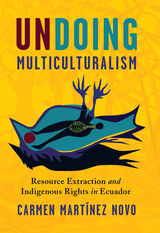
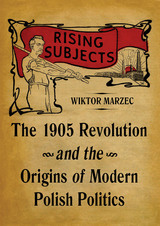
This study considers the 1905 Revolution as a tipping point for the ongoing developments of the public sphere. It addresses the question of Polish socialism, nationalism, and antisemitism. It demonstrates the difficulties in using the class cleavage for democratic politics in a conflict-ridden, multiethnic polity striving for an irredentist self-assertion against the imperial power.

Novelist and essayist Hilary Masters recreates a moment in 1940s Pittsburgh when circumstances, ideology, and a passion for the arts collided to produce a masterpiece in another part of the world.
E. J. Kaufmann, the so-called "merchant prince" who commissioned Frank Lloyd Wright's Fallingwater, was a man whose hunger for beauty included women as well as architecture.
He had transformed his family's department store into an art deco showcase with murals by Boardman Robinson and now sought to beautify the walls of the YM&WHA of which he was the president. Through his son E. J. Kaufmann, jr (the son preferred the lowercase usage), he met Juan O'Gorman, a rising star in the Mexican pantheon of muralists dominated by Diego Rivera, O'Gorman's friend and mentor.
O'Gorman and his American wife spent nearly six months in Pittsburgh at Kaufmann's invitation while the artist researched the city's history and made elaborate cartoons for the dozen panels of the proposed mural. Like Rivera, O'Gorman was an ardent Marxist whose views of society were radically different from those of his host, not to mention the giants of Pittsburgh's industrial empire-Carnegie, Frick, and Mellon. The murals were never painted, but why did Kaufmann commission O'Gorman in the first place? Was it only a misunderstanding?
In the discursive manner for which his fiction and essays are noted, Masters pulls together the skeins of world events, the politics of art patronage, and the eccentric personalities and cruel histories of the period into a pattern that also includes the figures of O'Gorman and his wife Helen, and Kaufmann, his wife Liliane, and their son. Masters traces the story through its many twists and turns to its surprising ending: E. J. Kaufmann's failure to put beautiful pictures on the walls of the Y in Pittsburgh resulted in Juan O'Gorman's creation of a twentieth-century masterpiece on a wall in the town of Pátzcuaro, Mexico.

Practicing Writing examines a pivotal era in the history of the most ubiquitous-and possibly most problematic-course in North American colleges and universities: the requireAd first-year writing course generally known as “freshman English.”
Thomas Masters's focus is the mid-twentieth century, beginning with the returning waves of World War II veterans attending college on the GI Bill. He then traces the education reforms that took place in the late 1950s after the launch of Sputnik and the establishment of composition as a separate discipline in 1963. This study draws upon archives at three midwestern schools that reflect a range of higher education options: Wheaton, a small, sectarian liberal arts college; Northwestern, a large private university; and Illinois, a large public university.
Practicing Writing gives voice to those whose work is often taken for granted or forgotten in other studies of the subject: freshman English students and their instructors. Masters examines students' papers, professors' letters, and course descriptions, and draws upon interviews conducted with teachers to present the practitioners' points of view.
Unlike other studies of the subject, which have tended to focus more on the philosophy, theory, and ideology of teaching composition and rhetoric, Masters reveals freshman English to be a practice-based phenomenon with a durable ideological apparatus. By reexamining texts that had previously been considered insignificant, he reveals the substance of first-year composition courses and the reasons for their durability.
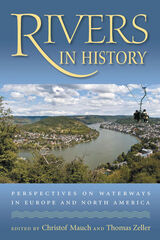
Rivers in History presents one of the first comparative histories of rivers on the continents of Europe and North America in the modern age. The contributors examine the impact of rivers on humans and, conversely, the impact of humans on rivers. They view this dynamic relationship through political, cultural, industrial, social, and ecological perspectives in national and transnational settings.
As integral sources of food and water, local and international transportation, recreation, and aesthetic beauty, rivers have dictated where cities have risen, and in times of flooding, drought, and war, where they've fallen. Modern Western civilizations have sought to control rivers by channeling them for irrigation, raising and lowering them in canal systems, and damming them for power generation.
Contributors analyze the regional, national, and international politicization of rivers, the use and treatment of waterways in urban versus rural environments, and the increasing role of international commissions in ecological and commercial legislation for the protection of river resources. Case studies include the Seine in Paris, the Mississippi, the Volga, the Rhine, and the rivers of Pittsburgh. Rivers in History is a broad environmental history of waterways that makes a major contribution to the study, preservation, and continued sustainability of rivers as vital lifelines of Western culture.
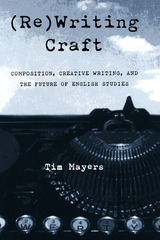

This is the first systematic study of French policy regarding equal employment for women. Mazur asks why policy makers choose to make symbolic reforms. Is there a certain set of conditions particularly conducive to the formation of symbolic reform? If symbolic reforms are meant to do nothing, why do governments allocate limited resources to them?
Mazur examines five legislative proposals, dating from 1967 to 1982, three of which resulted in legislation: the 1972 Equal Pay Law. the 1975 Equal Treatment Law, and the 1983 Egalité Professionelle Law. These five case studies reveal the continuity over three decades of “symbolic” reform, reform that does not solve the problem it was designed to address.
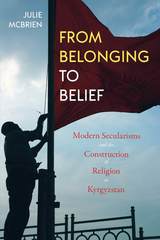
From Belonging to Belief offers an important corrective to studies that focus only on the pious turns among Muslims in Central Asia, and instead shows the complex process of evolving religion in a region that has experienced both Soviet atheism and post-Soviet secularism, each of which has profoundly formed the way Muslims interpret and live Islam.

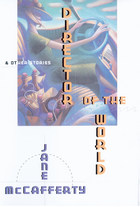
Implicit in these stories is a rootlessness that gives way to yearning and a passion for remembering. In the title story, a disturbed child, whose father has recently abandoned the family, attempts, in language reflecting her shattered sense of the world, to recapture some of their last experiences together.
These characters, and others in the collection, attempt to make sense of their broken lives and shattered thoughts. As John Wideman writes of the stories, there is “a sense of commitment to the struggle of making silent worlds speak, of forcing what is threatening or evil or destructive into some form we can see and conjure with.”
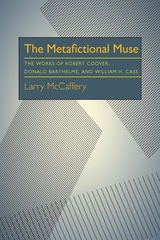
McCaffery interprets the works of three major writers of radically experimental fiction: Robert Coover; Donald Barthelme; and Willam H. Gass. The term “metafiction” here refers to a strain in American writing where the self-concious approach to the art of fiction-making is a commentary on the nature of meaning itself.

This unusual and provocative collection brings to light a dimension of Soviet history and policy rarely explored.

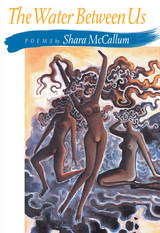
The Water Between Us is a poetic examination of cultural fragmentation, and the exile's struggle to reconcile the disparate and often conflicting influences of the homeland and the adopted country. The book also centers on other kinds of physical and emotional distances: those between mothers and daughters, those created by being of mixed racial descent, and those between colonizers and the colonized. Despite these distances, or perhaps because of them, the poems affirm the need for a multilayered and cohesive sense of self. McCallum's language is precise and graceful. Drawing from Anancy tales, Greek myth, and biblical stories, the poems deftly alternate between American English and Jamaican patois, and between images both familiar and surreal.
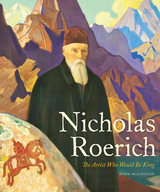
Russian painter, explorer, and mystic Nicholas Roerich (1874–1947) ranks as one of the twentieth century’s great enigmas. Despite mystery and scandal, he left a deep, if understudied, cultural imprint on Russia, Europe, India, and America. As a painter and set designer Roerich was a key figure in Russian art. He became a major player in Diaghilev’s Ballets Russes, and with Igor Stravinsky he cocreated The Rite of Spring, a landmark work in the emergence of artistic modernity. His art, his adventures, and his peace activism earned the friendship and admiration of such diverse luminaries as Albert Einstein, Eleanor Roosevelt, H. G. Wells, Jawaharlal Nehru, Raisa Gorbacheva, and H. P. Lovecraft.
But the artist also had a darker side. Stravinsky once said of Roerich that “he ought to have been a mystic or a spy.” He was certainly the former and close enough to the latter to blur any distinction. His travels to Asia, supposedly motivated by artistic interests and archaeological research, were in fact covert attempts to create a pan-Buddhist state encompassing Siberia, Mongolia, and Tibet. His activities in America touched Franklin Delano Roosevelt’s cabinet with scandal and, behind the scenes, affected the course of three US presidential elections.
In his lifetime, Roerich baffled foreign affairs ministries and intelligence services in half a dozen countries. He persuaded thousands that he was a humanitarian and divinely inspired thinker—but convinced just as many that he was a fraud or a madman. His story reads like an epic work of fiction and is all the more remarkable for being true. John McCannon’s engaging and scrupulously researched narrative moves beyond traditional perceptions of Roerich as a saint or a villain to show that he was, in many ways, both in equal measure.
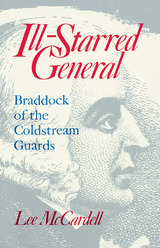

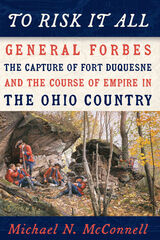
A close look at the Forbes Campaign and its personnel reveals much about both British relations with native peoples and the nature of Britain’s American empire during a time of stress. Unlike other campaigns, this one was composed largely of colonial—not professional British—troops. In addition, individual colonies negotiated their role in the campaign and frequently placed their own local interests ahead of those of the empire as a whole. The campaign thus suggests the limits of imperial power and how Britain’s hold over its American frontiers was, at best, tenuous and helped lead to an eventual break-down of empire in the 1760s and 1770s.
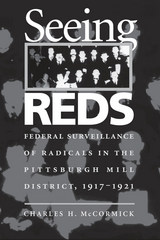
During World War I, fear that a network of German spies was operating on American soil justified the rapid growth of federal intelligence agencies. When that threat proved illusory, these agencies, staffed heavily by corporate managers and anti-union private detectives, targeted antiwar and radical labor groups, particularly the Socialist party and the Industrial Workers of the World.
Seeing Reds, based largely on case files from the Bureau of Investigation, Military Intelligence Division, and Office of Naval Intelligence, describes this formative period of federal domestic spying in the Pittsburgh region. McCormick traces the activities of L. M. Wendell, a Bureau of Investigation “special employee” who infiltrated the IWW’s Pittsburgh recruiting branch and the inner circle of anarchist agitator and lawyer Jacob Margolis. Wendell and other Pittsbugh based agents spied on radical organizations from Erie, Pennsylvania, to Camp Lee, Virginia, intervened in the steel and coal strikes of 1919, and carried out the Palmer raids aimed at mass deportation of members of the Union of Russian Workers and the New Communist Party.
McCormick’s detailed history uses extensive research to add to our understanding of the security state, cold war ideology, labor and immigration history, and the rise of the authoritarian American Left, as well as the career paths of figures as diverse as J. Edgar Hoover and William Z. Foster.
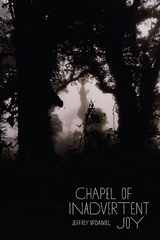
“Reading Jeffrey McDaniel’s gorgeously dark and utterly compelling Chapel of Inadvertent Joy reminds me that he is probably the most important poet in America. The book in your hands was written by a master of metaphor and a poet of huge imagination and fierce ingenuity, a fine antidote to realism. Get this voice in your head.”
—Major Jackson

"Known for his commanding stage presence as a reader, McDaniel trades hard in his fourth book on his rough-and-tumble persona--a recovering addict from the working class streets--while also showing softer sides. McDaniel's sometimes awkward, if earnest searching might just be what allows him to find moments of great beauty, humor and stillness." --Publishers Weekly
“McDaniel is known for his talent performing his poems, however his voice doesn’t lose its impact in written form. It may be more powerful because the reader can view the poet’s unique ideas and phrases over and over until their various meanings sink in.” —Gently Read Literature
"McDaniel zings metaphors across the page like he's the Robin Williams of poetry. This collection in frequently moving and inventive with enough lightheartedness and whimsy to balance the heaviness of the darker moments." --hipbooksterclub.com
Jeffrey McDaniel is the author of Alibi School, The Forgiveness Parade, and The Splinter Factory. His work has appeared in a number of anthologies, including Best American Poetry 1994, The Outlaw Bible of American Poetry, and New (American) Poets. He has won several awards, including an NEA Fellowship. He teaches creative writing at Sarah Lawrence College.
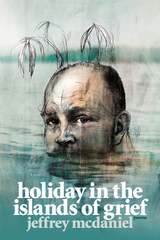
Jonathan
We are underwater off the coast of Belize.
The water is lit up even though its dark
as if there are illuminated seashells
scattered on the ocean floor.
We’re not wearing oxygen tanks,
yet staying underwater for long stretches.
We are looking for the body of the boy
we lost. Each year he grows a little older.
Last December I opened his knapsack
and stuck in a plastic box of carrots.
Even though we’re underwater, we hear
a song playing over a policeman’s radio.
He comes to the shoreline to park
and eat midnight sandwiches, his headlights
fanning out across the harbor.
And I hold you close, apple of my closed eye,
red dance of my opened fist.
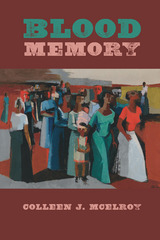
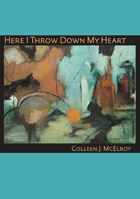

In the post-Soviet era, democracy has made little progress in Central Asia. In Chaos, Violence, Dynasty, Eric McGlinchey presents a compelling comparative study of the divergent political courses taken by Kyrgyzstan, Uzbekistan, and Kazakhstan in the wake of Soviet rule. McGlinchey examines economics, religion, political legacies, foreign investment, and the ethnicity of these countries to evaluate the relative success of political structures in each nation.
McGlinchey explains the impact of Soviet policy on the region, from Lenin to Gorbachev. Ruling from a distance, a minimally invasive system of patronage proved the most successful over time, but planted the seeds for current “neo-patrimonial” governments. The level of direct Soviet involvement during perestroika was the major determinant in the stability of ensuing governments. Soviet manipulations of the politics of Uzbekistan and Kazakhstan in the late 1980s solidified the role of elites, while in Kyrgyzstan the Soviets looked away as leadership crumbled during the ethnic riots of 1990. Today, Kyrgyzstan is the poorest and most politically unstable country in the region, thanks to a small, corrupt, and fractured political elite. In Uzbekistan, Islam Karimov maintains power through the brutal suppression of disaffected Muslims, who are nevertheless rising in numbers and influence. In Kazakhstan, a political machine fueled by oil wealth and patronage underlies the greatest economic equity in the region, and far less political violence.
McGlinchey’s timely study calls for a more realistic and flexible view of the successful aspects of authoritarian systems in the region that will be needed if there is to be any potential benefit from foreign engagement with the nations of Central Asia, and similar political systems globally.
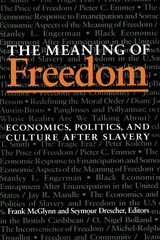

Power is immanent in human affairs; by definition, human beings are political animals. The only way to fully comprehend and analyze the complexities of power is to locate where material, psychological, and social dimensions of political power are ultimately and socially situated and reproduced.
This collection of essays highlights the theoretical concerns of political anthropology. Initially published in the journal Ethnology, the essays were classroom tested and collected on the basis of student comments. An in-depth introduction presents the intellectual traditions in political anthropology and focuses particularly on the manner in which various periods defined and dealt with the nature of social power. It also places current works within the framework of critical but constantly revised theoretical problems.
Contributors: Mart Bax; Ernest Brandewie; Karen J. Brison; Philip A. Dennis; Richard G. Dillon; Harvey E. Goldberg; James Howe; Donald T. Hughes; Roger M. Keesing; Donald V. Kurtz; Charles Lindhom; Robert F. Maher; Richard W. Miller; Sydel F. Silverman; L. Lewis Wall; Daniela Weinberg
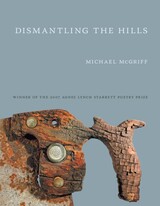
WINNER OF THE 2007 AGNES LYNCH STARRETT POETRY PRIZE
Dismantling the Hills is a testament to working-class, rural American life. In a world of machinists, loggers, mill workers, and hairdressers, the poems collected here bear witness to a landscape, an industry, and a people teetering on the edge of ruin. From tightly constructed narratives to expansive and surreal meditations, the various styles in this book not only reflect the poet's range, but his willingness to delve into his obsessions from countless angles Full of despair yet never self-loathing, full of praise yet never nostalgic, Dismantling the Hills is both ode and elegy. McGriff's vision of blue-collar life is one of complication and contradiction, and the poems he makes are authentic, unwavering, and unapologetically American.


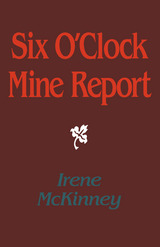
The poems are firmly grounded in concern for the ways in which the elemental powers are at work in the earth and in us: on the surface of our lives, and deeper in the underworld of the coalmines. In McKinney’s poems, the human world is never seen as separate from the natural one.

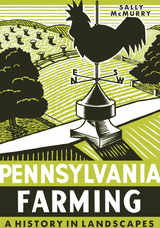
Since precolonial times, agriculture has been deeply woven into the fabric of Pennsylvania’s history and culture. Pennsylvania Farming presents the first history of Pennsylvania agriculture in than more sixty years and offers a completely new perspective. Sally McMurry goes beyond a strictly economic approach and considers the diverse forces that helped shape the farming landscape, from physical factors to cultural repertoires to labor systems. Above all, the people who created and worked on Pennsylvania’s farms are placed at the center of attention. More than 150 photographs inform the interpretation, which offers a sweeping look at the evolution of Pennsylvania’s agricultural landscapes right up to the present day.
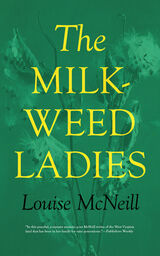
The Milkweed Ladies is written out of deep affection for and intimate knowledge of the lives of rural people and the rhythms of the natural world. It is a personal account of the farm in southern West Virginia where poet Louise McNeill’s family has lived for nine generations.
The Milkweed Ladies is filled with memorable characters—an herb-gathering granny, McNeill’s sailor father, her patient, flower-loving mother, and Aunt Malindy in her “black sateen dress” who “never did a lick of work.” McNeill writes movingly of the harsh routines of the lives of her family, from spring plowing to winter sugaring, and of the hold the farm itself has on them and the earth itself on all of us. McNeill juxtaposes the life of the farm with the larger world events that impinge on it, such as the destruction from lumber companies in the 1930s and World War II in the ’40s.
With her poet’s gift for detail and language, McNeill creates a particular world forgotten by many of us, and to some of us, never known.

Musically complex and intellectually sophisticated, Louise McNeill’s imagery and rhythms have their deepest sources in the West Virginia mountains where she was born in 1911 on a farm that has been in her family for nine generations. These are rooted poems, passionately concerned with stewardship of the land and with the various destructions of land and people that often come masked as “progress.”
In colloquial, rural, and sometimes macabre imagery, Louise McNeill documents the effects of the change from a farm to an industrial economy on the West Virginia mountain people. She writes of the earliest white settlements on the western side of the Alleghenies and of the people who remained there through the coming of the roads, the timber and coal industries, and the several wars of this century.
The reappearance of Louise McNeill’s long out-of-print poems will be cause for celebration for readers familiar with her work. Those reading it for the first time will discover musical, serious, idiosyncratic, and startling poems that define the Appalachian experience.
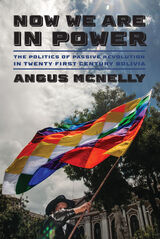
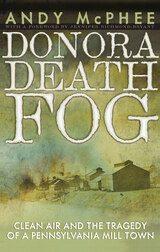
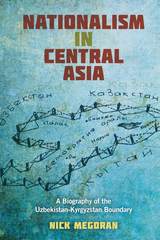
Megoran draws on twenty years of extensive research in the borderlands via interviews, observations, participation, and newspaper analysis. He considers the problems of nationalist discourse versus local vernacular, elite struggles versus borderland solidarities, boundary delimitation versus everyday experience, border control versus resistance, and mass violence in 2010, all of which have exacerbated territorial anxieties. Megoran also revisits theories of causation, such as the loss of Soviet control, poorly defined boundaries, natural resource disputes, and historic ethnic clashes, to show that while these all contribute to heightened tensions, political actors and their agendas have clearly driven territorial aspirations and are the overriding source of conflict. As this compelling case study shows, the boundaries of the The Ferghana Valley put in succinct focus larger global and moral questions of what defines a good border.
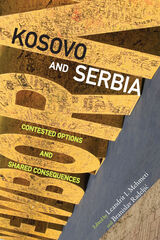
This volume brings together scholars of Serbian, Albanian, Christian, and Muslim backgrounds to examine the Serbian-Albanian dynamic in Kosovo through historical, political, economic, and social perspectives. The contributors offer fresh insights on the consequences of internationalizing the conflict, the impact of international agencies and institutions since the 1999 intervention, the continuing human rights violations, present day party politics, and the prospects for economic cooperation with Serbia, among other topics. Kosovo and Serbia will inform scholars and students of the region, exploring the nature of a tragic political and strategic struggle that has existed for centuries and drawn the attention of the entire international community.
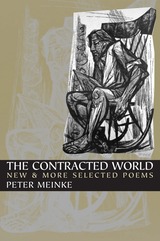
The Contracted World includes representative poems from four of Peter Meinke's previous collections. In poems that show us what it is like to grow up in America, love, nature, cities, sports, war, and peace are filtered through the imagination and verbal skills of one of our brightest poets.
The new poems experiment with form, and address a life that is shrinking in specific ways: the poet is aging, the world is getting smaller, our post-9/11 freedoms are eroding, and our choices seem fewer and less attractive. Despite feelings of anger and loneliness, the narrator speaks to us in a personal, accessible, and often humorous voice.
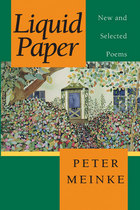
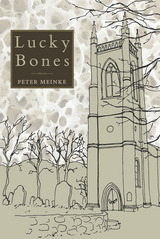
Consisting of over sixty new poems, the book begins with a house-shaped poem about a family in a beloved old home, and then moves out into the world with poems about a fire-bug, drive-by shootings, and the often violent human condition before circling back to the home and a final epitaph. A clear-eyed feeling of loss permeates Lucky Bones, but not despair: in the midst of conflict, Meinke’s world is full of wonder, and wonderful people.
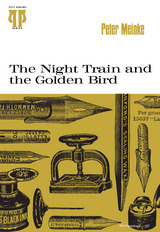

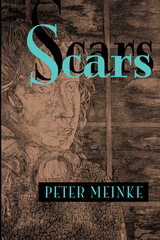
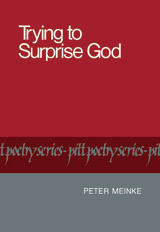
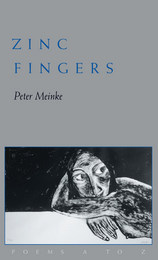
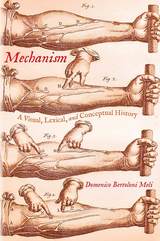

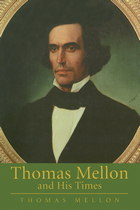
In 1885, at the age of seventy-two and “in the evening of life,” Thomas Mellon published his autobiography in a limited edition exclusively for his family. He was a distinguished and highly successful Pittsburgh entrepreneur, judge, and banker, and his descendants would play major roles in American business, art, and philanthropy. Two of his sons, Andrew William and Richard Beatty, were to join Henry Ford and John D. Rockefeller as the four wealthiest men in the United States.
Thomas Mellon was an anomaly among the great American capitalists of his time. Highly literate and intelligent, astute and deadly honest about his own life and financial success, and an excellent narrative writer with a chilly but genuine sense of humor, he wrote a perspective and self-revealing book that remains to this day a major autobiography and an important source for American social and business history.
That it has found very few readers in the 114 year since its publication is due to the author himself. Warning his descendants in the preface that the book should never “be for sale in the bookstore, nor any new edition published,” because it contains “nothing which concerns the public to know, and much which if writing for it I would have omitted,” Thomas in effect buried a masterpiece.
Nor in later years has it ever been generally available. An abridged version was prepared solely for the Mellon family in 1968, and the book also appeared years ago in an obscure fascimile. Until the University of Pittsburgh Press edition, Thomas Mellon and His Times has been virtually unobtainable.
Born in Ulster with a Scotch-Irish heritage, Thomas Mellon immigrated to the United States in 1818 at the age of five. He was raised by his parents on a small, hilly farm at Poverty Point, about twenty miles east of Pittsburgh. When he was nine, he walked to Pittsburgh and, awe-struck, viewed the mansion and steam mill of the Negley family, “impressed . . . with an idea of wealth and magnificence I had before no conception of.”
Yet the true turning point of his life was a decision he made at the age of seventeen. For years his father, Andrew, had insisted that Thomas become a farmer. One summer day in 1831, leaving his son cutting timber, Andrew rode to the county seat to close on the purchase of an adjoining farm which he intended for Thomas. “Nearly crazed” by the impending collapse of all hope of “acquiring knowledge and wealth,” Thomas threw down his axe and ran ten miles to stop the purchase. From this spontaneous decision flowed his later success as a judge, banker, and capitolist who caught the exhilarating tide of the American economy in the second half of the nineteenth century.
For this new edition of the book, Paul Mellon, Thomas Mellon’s grandson, has written a preface, and David McCullough, winner of the Pulitzer Prize for his biography of Harry S. Truman, has contributed a foreword. The introduction, notes, and afterword by Mary L, Briscoe, Professor of English at the University of Pittsburgh and editor of American Autobiography, 1945-1980, provide the historical and social context for the autobiography. The book is illustrated with three maps and approximately twenty-five photographs, many of them rarely seen, from a variety of sources that includes Paul Mellon and other members of the Mellon family.
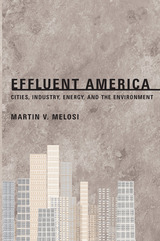
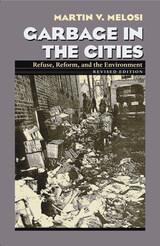
As recently as the 1880s, most American cities had no effective means of collecting and removing the mountains of garbage, refuse, and manure-over a thousand tons a day in New York City alone-that clogged streets and overwhelmed the senses of residents. In his landmark study, Garbage in the Cities, Martin Melosi offered the first history of efforts begun in the Progressive Era to clean up this mess.
Since it was first published, Garbage in the Cities has remained one of the best historical treatments of the subject. This thoroughly revised and updated edition includes two new chapters that expand the discussion of developments since World War I. It also offers a discussion of the reception of the first edition, and an examination of the ways solid waste management has become more federally regulated in the last quarter of the twentieth century.
Melosi traces the rise of sanitation engineering, accurately describes the scope and changing nature of the refuse problem in U.S. cities, reveals the sometimes hidden connections between industrialization and pollution, and discusses the social agendas behind many early cleanliness programs. Absolutely essential reading for historians, policy analysts, and sociologists, Garbage in the Cities offers a vibrant and insightful analysis of this fascinating topic.

As an essential resource, water has been the object of warfare, political wrangling, and individual and corporate abuse. It has also become an object of commodification, with multinational corporations vying for water supply contracts in many countries. In Precious Commodity, Martin V. Melosi examines water resources in the United States and addresses whether access to water is an inalienable right of citizens, and if government is responsible for its distribution as a public good.
Melosi provides historical background on the construction, administration, and adaptability of water supply and wastewater systems in urban America. He cites budgetary constraints and the deterioration of existing water infrastructures as factors leading many municipalities to seriously consider the privatization of their water supply. Melosi also views the role of government in the management of, development of, and legal jurisdiction over America’s rivers and waterways for hydroelectric power, flood control, irrigation, and transportation access. Looking to the future, he compares the costs and benefits of public versus private water supply, examining the global movement toward privatization.

Immersed in their on-demand, highly consumptive, and disposable lifestyles, most urban Americans take for granted the technologies that provide them with potable water, remove their trash, and process their wastewater. These vital services, however, are the byproduct of many decades of development by engineers, sanitarians, and civic planners.
In The Sanitary City, Martin V. Melosi assembles a comprehensive, thoroughly researched and referenced history of sanitary services in urban America. He examines the evolution of water supply, sewage systems, and solid waste disposal during three distinct eras: The Age of Miasmas (pre-1880); The Bacteriological Revolution (1880-1945); and The New Ecology (1945 to present-day).
Originally published in 2000, this abridged edition includes updated text and bibliographic materials. The Sanitary City is an essential resource for those interested in environmental history, environmental engineering, science and technology, urban studies, and public health.
Winner of:
George Perkins Marsh Prize from the American Society for Environmental History Urban History Association Prize for the best book in North American Urban History
Abel Wolman Prize from the Public Works Historical Society
Sidney Edelstein Prize from the Society for the History of Technology

Houston's meteoric rise from a bayou trading post to the world's leading oil supplier owes much to its geography, geology, and climate: the large natural port of Galveston Bay, the lush subtropical vegetation, the abundance of natural resources. But the attributes that have made it attractive for industry, energy, and urban development have also made it particularly susceptible to a variety of environmental problems. Energy Metropolis presents a comprehensive history of the development of Houston, examining the factors that have facilitated unprecedented growth-and the environmental cost of that development.
The landmark Spindletop strike of 1901 made inexpensive high-grade Texas oil the fuel of choice for ships, industry, and the infant automobile industry. Literally overnight, oil wells sprang up around Houston. In 1914, the opening of the Houston Ship Channel connected the city to the Gulf of Mexico and international trade markets. Oil refineries sprouted up and down the channel, and the petroleum products industry exploded. By the 1920s, Houston also became a leading producer of natural gas, and the economic opportunities and ancillary industries created by the new energy trade led to a population boom. By the end of the twentieth century, Houston had become the fourth largest city in America.
Houston's expansion came at a price, however. Air, water, and land pollution reached hazardous levels as legislators turned a blind eye. Frequent flooding of altered waterways, deforestation, hurricanes, the energy demands of an air-conditioned lifestyle, increased automobile traffic, exponential population growth, and an ever-expanding metropolitan area all escalated the need for massive infrastructure improvements.
The experts in Energy Metropolis examine the steps Houston has taken to overcome laissez-faire politics, indiscriminate expansion, and infrastructural overload. What emerges is a profound analysis of the environmental consequences of large-scale energy production and unchecked growth.

Samuel Mencher spent a year in Great Britain (1965-1966) interviewing leaders of professional medical associations, executives of the health insurance societies, and general practitioners and specialists engaged in private practice. His study of the private medical service twenty years after the passage of the National Health Service Act reviews the changes, problems, and successes of the National Health Service: trends in the amount and types of private medicine, the issues of conflict between private medicine and public policy, and attitudes of the public and of medical professionals.

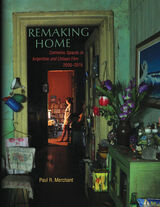
Houses, in the Argentine and Chilean films of the early twenty-first century, provide much more than a backdrop to on-screen drama. Nor are they simply refuges from political turmoil or spaces of oppression. Remaking Home argues that domestic spaces are instead the medium through which new, fragile common identities are constructed. The varied documentary and fiction films analyzed here, which include an early work by Oscar winner Sebastián Lelio, use the domestic sphere as a laboratory in which to experiment with narrative, audiovisual techniques, and social configurations. Where previous scholarship has focused on the social fragmentation and political disillusionment visible in contemporary film, Remaking Home argues that in order to understand the political agency of contemporary cinema, it is necessary to move beyond deconstructive critical approaches to Latin American culture. In doing so, it expands the theoretical scope of studies in Latin American cinema by finding new points of contact between the cultural critique of Nelly Richard, the work of Bruno Latour, and theories of new materialism.

This book acts as a catalyst for anthropology to foster research ties to its neighboring disciplines in the behavioral and health sciences. It is an introspective and circumspective appraisal of the relevance of anthropology to these related disciplines and professions and assesses the usefulness of reciprocal borrowing of ideas and investigative tools among them. Essays by scholars from several disciplines are included, along with commentaries on each essay by noted social scientists.
Contributors: Bernard S. Cohn; Albert Damon; Jules Henry; Donald L. Hochstrasser; Solon T. Kimball; Bertram S. Kraus; Wilton M. Krogman; Richard F. Salisbury; Harvey B. Sarles; Richard G. Snyder; Jesse W. Tapp, Jr.; Otto von Mering; and Murray L. Wax.

From the tiny shrew to the black bear, Pennsylvania’s hills and valleys are teeming with sixty-three species of wild mammals. Many of these animals are rarely seen except when pursued by an interested biologist, mammologist, or nature photographer. Now, with the publication of this book, student, scholar, and nature lover alike will have a ready reference to distinguish between a deer mouse and a white-footed mouse, to identify raccoon tracks, and to learn about Pennsylvania’s other inhabitants.
An attractive backpack-size volume, written in lively prose, the Guide to the Mammals of Pennsylvania opens with a short introduction to Pennsylvania’s environment and the characteristics defining a mammal. The bulk of the book consists of species accounts of the mammals grouped into families and orders. Each account includes a short list of data, a Pennsylvania range map, a North American range map, and a narrative of the physical, ecological, and behavioral characteristics of the species.
Exciting photographs of each of the species in its natural habitat, 17 in color, and drawings of animal tracks are especially useful for identification, and a glossary and a bibliography provide definitions and references for the serious reader. Naturalists, whether amateur or professional, will find the book useful in the field; it will be an indispensable tool in the classroom.
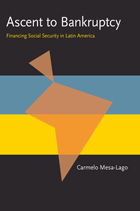
In words that eerily echo current U.S. debates, Mesa-Lago analyzes virtually all social insurance programs: old age, disability and survivors' pensions; health care; occupational hazards; family allowances; and unemployment. For social security specialists, this impressive study will serve as a comprehensive regional handbook on the legal, administrative, and financial features of Latin America's programs. Students of comparative policy and applied economics will find Mesa-Lago's methodology, analytical framework, and policy recommendations invaluable.

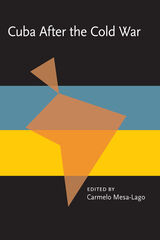

READERS
Browse our collection.
PUBLISHERS
See BiblioVault's publisher services.
STUDENT SERVICES
Files for college accessibility offices.
UChicago Accessibility Resources
home | accessibility | search | about | contact us
BiblioVault ® 2001 - 2024
The University of Chicago Press









